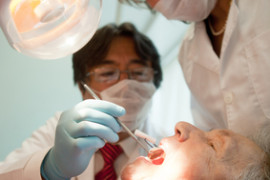Since the beginning of the oral-systemic health movement, oral health and cardiovascular disease have been linked, though whether or not the relationship is causal has long been debated.
While major healthcare entities like the American Heart Association maintain that there is not yet enough evidence to prove causality, several studies have been released recently that insinuate the correlation between poor oral health and heart disease is no mere coincidence
One such study was released earlier this year in the International Journal of Cardiology. The study, which sought to compare the oral and vascular bacterial profiles with the oral health status of patients with vascular disease, included a small sample size of 13 patients with cardiovascular disease.
Of those 13 individuals, ten had no teeth, and all had Streptococcus mutans in both oral and vascular samples. Other virulent pathogens, including Prevotella intermedia, Porphyromonas gingivalis, and Treponema denticola, were also found, though not nearly as prevalent as S. mutans. In previous studies however, significant levels of these bacteria have been found in heart samples.
S. mutans is primarily associated with tooth decay, but as recently as this year was found to aggravate inflammatory bowel disease by inciting an inflammatory response from the liver.
Researchers of this study concluded that the presence of S. mutans in both oral and atherosclerotic plaque samples suggests the bacterium may play a role in the progression of atherosclerosis.
While this study is hardly conclusive proof of a causal relationship between oral health and heart disease, its findings are still significant. It is not only periodontal pathogens that connect heart disease and oral health, but also cariogenic bacteria as well.



